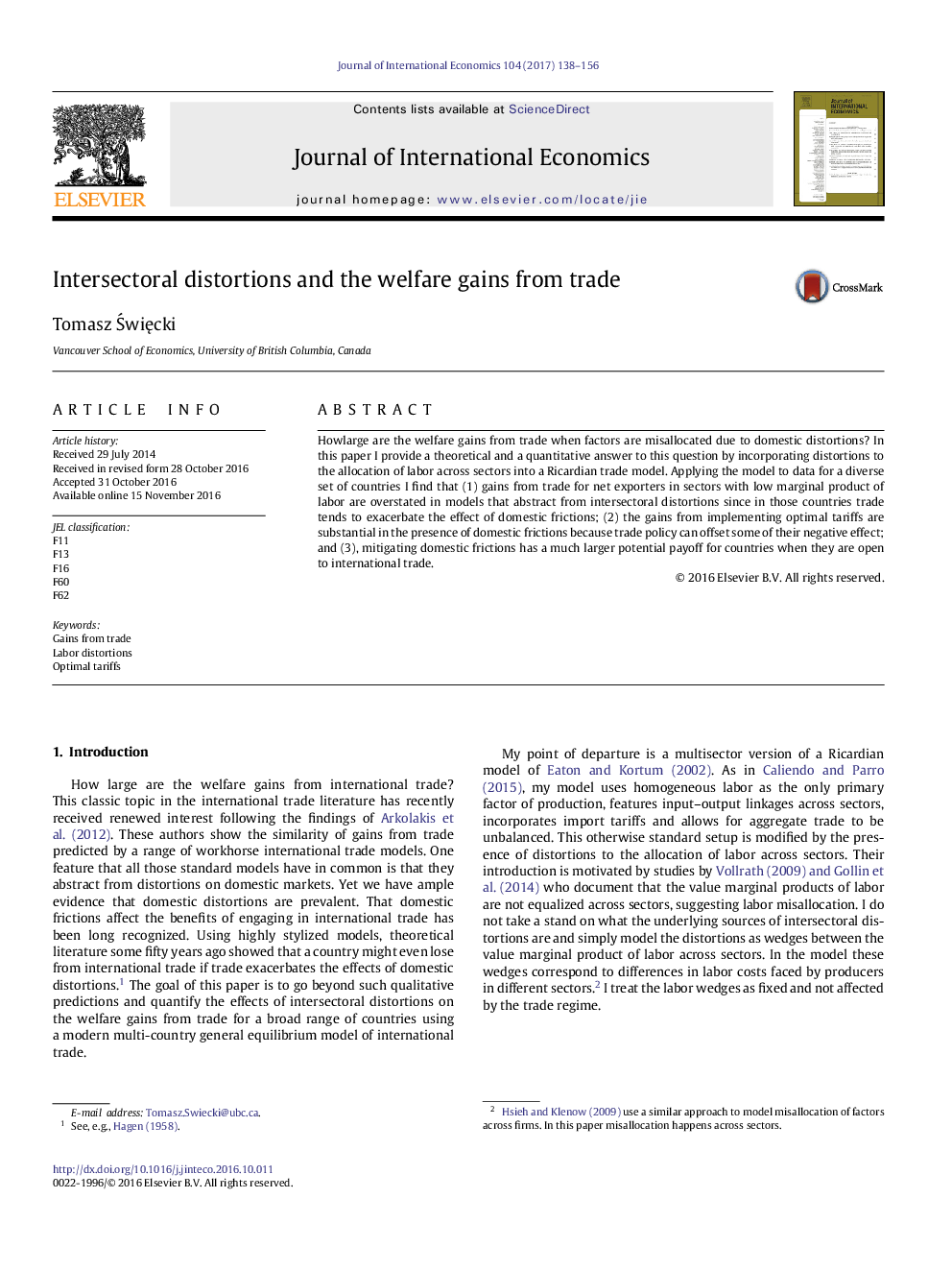| Article ID | Journal | Published Year | Pages | File Type |
|---|---|---|---|---|
| 5100926 | Journal of International Economics | 2017 | 19 Pages |
Abstract
Howlarge are the welfare gains from trade when factors are misallocated due to domestic distortions? In this paper I provide a theoretical and a quantitative answer to this question by incorporating distortions to the allocation of labor across sectors into a Ricardian trade model. Applying the model to data for a diverse set of countries I find that (1) gains from trade for net exporters in sectors with low marginal product of labor are overstated in models that abstract from intersectoral distortions since in those countries trade tends to exacerbate the effect of domestic frictions; (2) the gains from implementing optimal tariffs are substantial in the presence of domestic frictions because trade policy can offset some of their negative effect; and (3), mitigating domestic frictions has a much larger potential payoff for countries when they are open to international trade.
Related Topics
Social Sciences and Humanities
Economics, Econometrics and Finance
Economics and Econometrics
Authors
Tomasz ÅwiÄcki,
